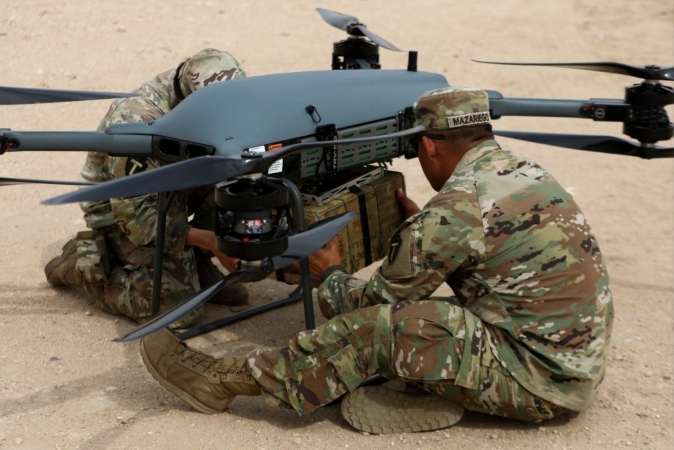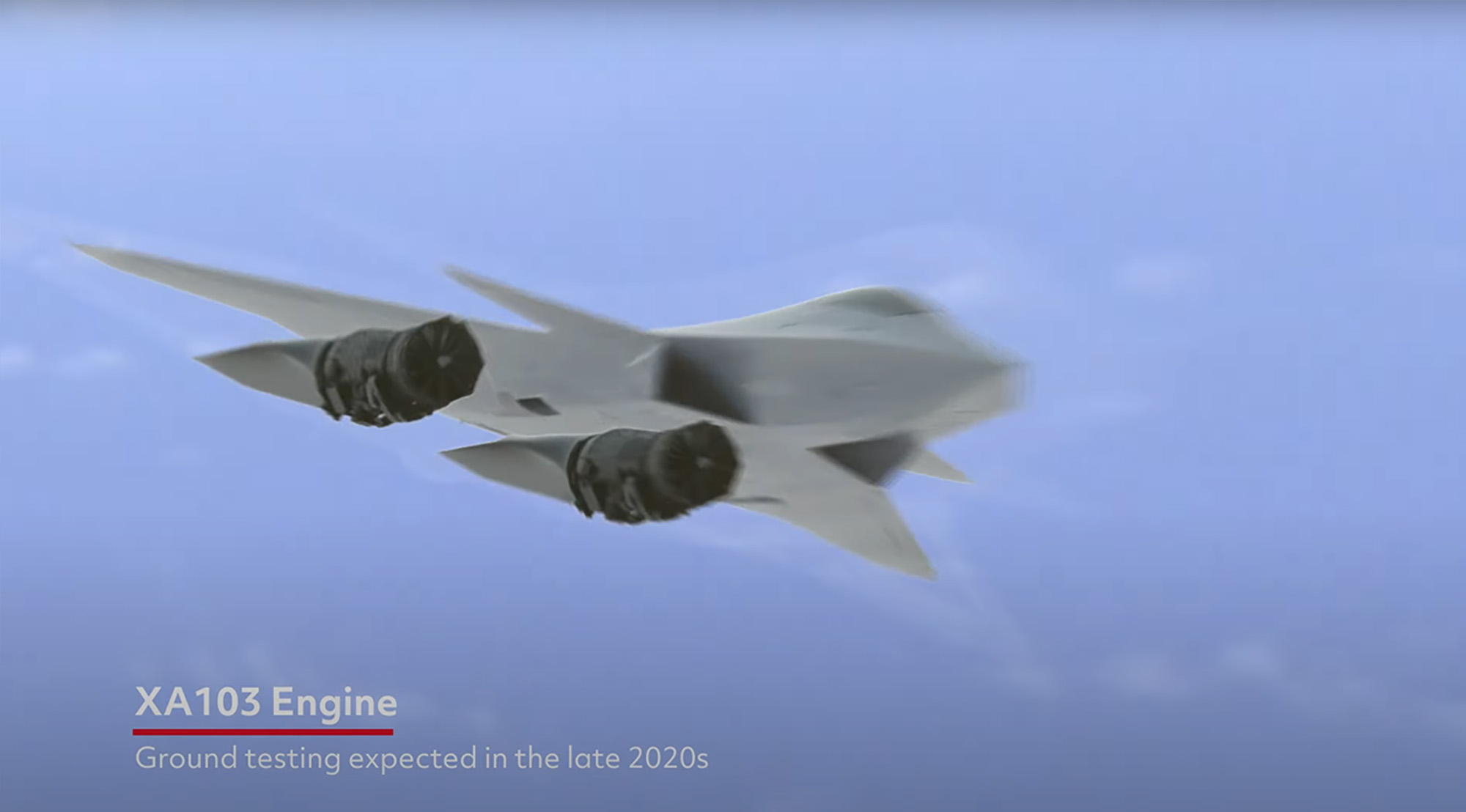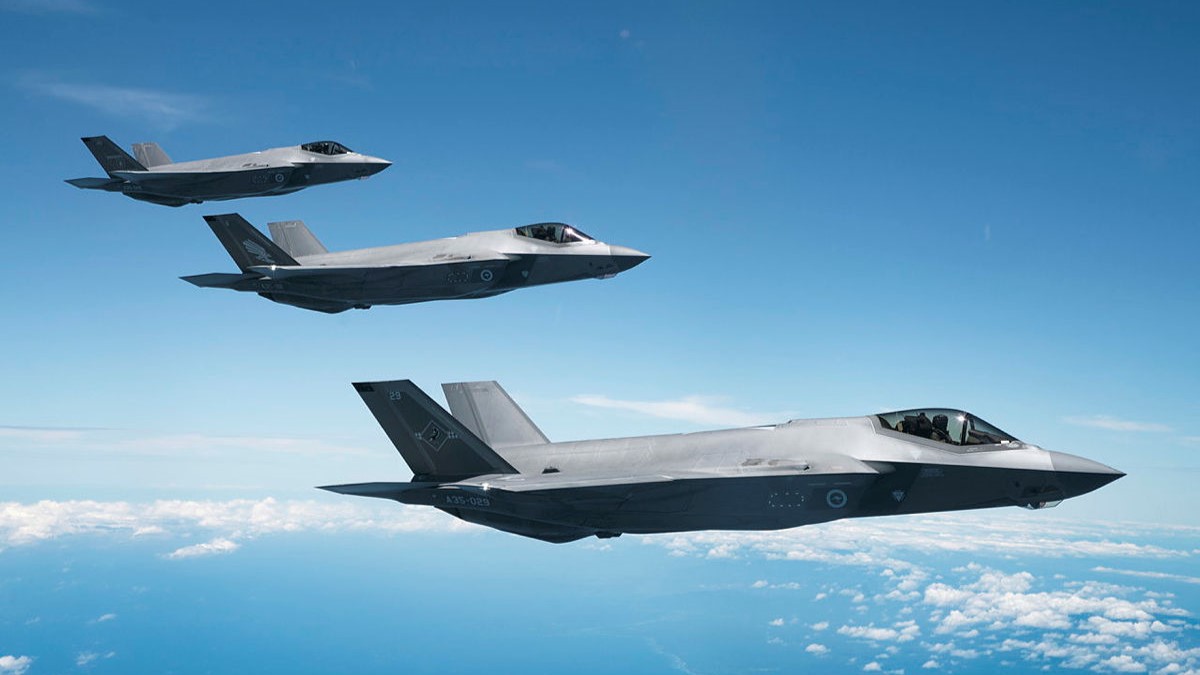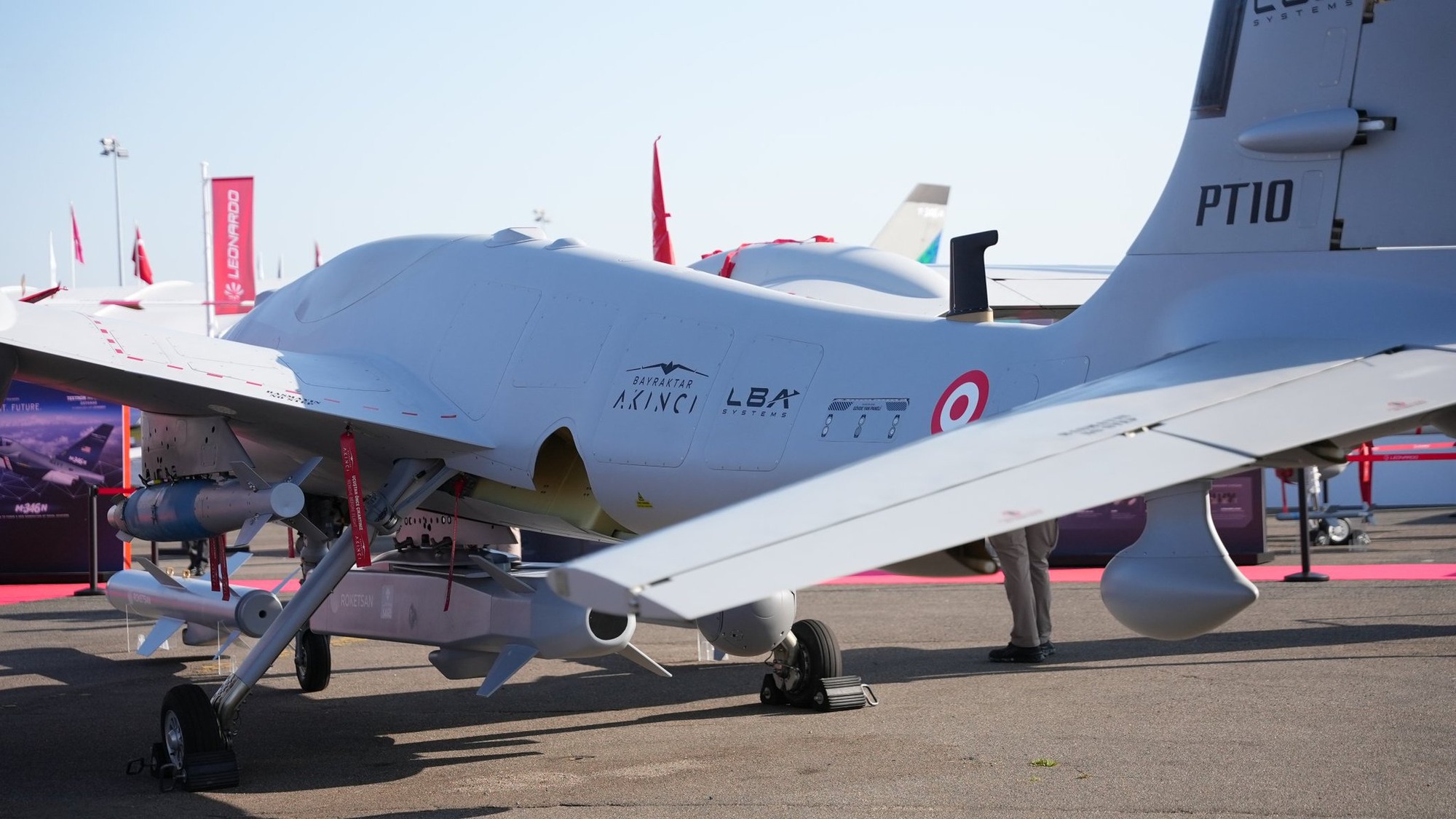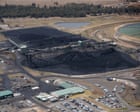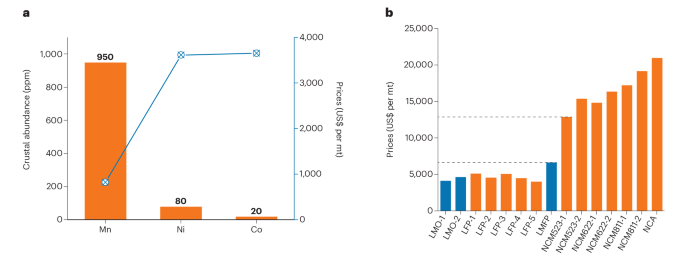The D Brief: DIA’s Iran-strike assessment; NATO’s Ukraine forecast; UK plans nuke-capable F-35s; FBI agents, re-redirected; And a bit more.
Despite the president’s claims of “total obliteration,” an early assessment by the Defense Intelligence Agency suggests the U.S. military strikes on Iran’s nuclear facilities over the weekend did not destroy the main parts of that program and probably only set it back by a few months. CNN first reported the intelligence assessment Tuesday, followed later by other outlets including the New York Times, the Associated Press, the Wall Street Journal, and our sister site Nextgov. Recap: Under orders from President Donald Trump, U.S. bombers struck the Fordow, Natanz, and Isfahan nuclear facilities in Iran on Saturday night in an operation called Midnight Hammer. According to Trump, the B-2 bombers and Tomahawk missile launches “obliterated” the three nuclear facilities. But on Tuesday, a classified briefing on the strikes for House lawmakers was reportedly cancelled without explanation—just as reports of the DIA assessment bounced around Washington. According to the assessment, David DiMolfetta of Nextgov writes, “the bombings did not fully wipe out the underground centrifuges used to enrich uranium needed for nuclear weapons, and that only much of the aboveground facilities were damaged.” Meanwhile, House Intelligence Committee member Rep. Mike Quigley, D-Ill., told the Washington Post there was widespread belief across Congress that the briefing was delayed because of the findings in the DIA report. When asked about the intelligence assessment Wednesday, Trump told reporters, “They don't know,” referring to the analysts, before adding, “I believe it was total obliteration.” However, Trump speaks a lot; and he also said Wednesday, “The intelligence says, ‘We don't know, it could have been very severe.’ That's what the intelligence says. So I guess that's correct, but I think we can take the ‘we don't know.’ It was very severe. It was obliteration,” he told reporters at The Hague. Trump also said his decision to authorize the strikes inside Iran was similar to U.S. nuclear bombs on Hiroshima and Nagasaki. “I don't want to use an example of Hiroshima, I don't want to use an example of Nagasaki, but that was essentially the same thing. That ended that war. This ended the war,” the president told reporters. Official White House reaction: The DIA report is “flat-out wrong” and was leaked to the press “by an anonymous, low-level loser in the intelligence community,” press secretary Karoline Leavitt said on social media. By the way: Trump’s Pentagon chief said the FBI is now investigating how the DIA report may have been leaked on Tuesday. “We’re doing a leak investigation with the FBI right now, because this information is for internal purposes,” Defense Secretary Pete Hegseth said during his visit to The Hague Wednesday for this year’s NATO summit. More after the jump… Welcome to this Wednesday edition of The D Brief, a newsletter dedicated to developments affecting the future of U.S. national security, brought to you by Ben Watson and Bradley Peniston. Share your tips and feedback here. And if you’re not already subscribed, you can do that here. On this day in 1996, 19 U.S. Air Force personnel died and nearly 500 others were wounded in the Khobar Towers bombing carried out by Shia militants in Saudi Arabia. Why might the U.S. bombs have failed to achieve their intended goals? “It depends enormously on the kind of rock” that the bombs are trying to penetrate at the Fordow mountain complex, Raymond Jeanloz of the University of California, Berkeley, told NPR. But that’s not all. “If there's any variations...including fractures or gaps, that can deflect the trajectory into the ground,” Jeanloz said. A second opinion: Saturday's strike on Iran was perfectly timed, argues retired U.S. Army Lt. Gen. Chuck Hamilton, writing Tuesday in Defense One. “The bombing of three Iranian nuclear sites represents the culmination of what may be the most rehearsed, examined, and studied war plan of the last twenty years,” Hamilton says, and adds, “If Iran instead chooses negotiation and denuclearization, Saturday will be remembered as the moment when twenty years of patient preparation finally paid off.” Another consideration: “The attack on Iran makes it harder to get any adversaries to the table” for diplomatic talks in the future, former U.S. Marine Adam Weinstein argued Monday in Foreign Policy. It’s a point Mark Landler of the Times echoed in a separate analysis Tuesday, which posed the question, “Will America’s pre-emptive strike discourage other countries from pursuing a weapon—or just the opposite?” “The last country to get [a nuclear weapon], North Korea, has never faced such an attack,” Landler writes. And “After years of defying demands to dismantle its nuclear program, it is now viewed as largely impregnable.” Additional reading: “Middle East unrest drives conversation on US troop presence,” Defense One’s Meghann Myers reported Tuesday from a confirmation hearing in the Senate; “FBI agents pulled off

Recap: Under orders from President Donald Trump, U.S. bombers struck the Fordow, Natanz, and Isfahan nuclear facilities in Iran on Saturday night in an operation called Midnight Hammer. According to Trump, the B-2 bombers and Tomahawk missile launches “obliterated” the three nuclear facilities.
But on Tuesday, a classified briefing on the strikes for House lawmakers was reportedly cancelled without explanation—just as reports of the DIA assessment bounced around Washington. According to the assessment, David DiMolfetta of Nextgov writes, “the bombings did not fully wipe out the underground centrifuges used to enrich uranium needed for nuclear weapons, and that only much of the aboveground facilities were damaged.” Meanwhile, House Intelligence Committee member Rep. Mike Quigley, D-Ill., told the Washington Post there was widespread belief across Congress that the briefing was delayed because of the findings in the DIA report.
When asked about the intelligence assessment Wednesday, Trump told reporters, “They don't know,” referring to the analysts, before adding, “I believe it was total obliteration.” However, Trump speaks a lot; and he also said Wednesday, “The intelligence says, ‘We don't know, it could have been very severe.’ That's what the intelligence says. So I guess that's correct, but I think we can take the ‘we don't know.’ It was very severe. It was obliteration,” he told reporters at The Hague.
Trump also said his decision to authorize the strikes inside Iran was similar to U.S. nuclear bombs on Hiroshima and Nagasaki. “I don't want to use an example of Hiroshima, I don't want to use an example of Nagasaki, but that was essentially the same thing. That ended that war. This ended the war,” the president told reporters.
Official White House reaction: The DIA report is “flat-out wrong” and was leaked to the press “by an anonymous, low-level loser in the intelligence community,” press secretary Karoline Leavitt said on social media.
By the way: Trump’s Pentagon chief said the FBI is now investigating how the DIA report may have been leaked on Tuesday. “We’re doing a leak investigation with the FBI right now, because this information is for internal purposes,” Defense Secretary Pete Hegseth said during his visit to The Hague Wednesday for this year’s NATO summit.
More after the jump…
Welcome to this Wednesday edition of The D Brief, a newsletter dedicated to developments affecting the future of U.S. national security, brought to you by Ben Watson and Bradley Peniston. Share your tips and feedback here. And if you’re not already subscribed, you can do that here. On this day in 1996, 19 U.S. Air Force personnel died and nearly 500 others were wounded in the Khobar Towers bombing carried out by Shia militants in Saudi Arabia.
Why might the U.S. bombs have failed to achieve their intended goals? “It depends enormously on the kind of rock” that the bombs are trying to penetrate at the Fordow mountain complex, Raymond Jeanloz of the University of California, Berkeley, told NPR. But that’s not all. “If there's any variations...including fractures or gaps, that can deflect the trajectory into the ground,” Jeanloz said.
A second opinion: Saturday's strike on Iran was perfectly timed, argues retired U.S. Army Lt. Gen. Chuck Hamilton, writing Tuesday in Defense One. “The bombing of three Iranian nuclear sites represents the culmination of what may be the most rehearsed, examined, and studied war plan of the last twenty years,” Hamilton says, and adds, “If Iran instead chooses negotiation and denuclearization, Saturday will be remembered as the moment when twenty years of patient preparation finally paid off.”
Another consideration: “The attack on Iran makes it harder to get any adversaries to the table” for diplomatic talks in the future, former U.S. Marine Adam Weinstein argued Monday in Foreign Policy. It’s a point Mark Landler of the Times echoed in a separate analysis Tuesday, which posed the question, “Will America’s pre-emptive strike discourage other countries from pursuing a weapon—or just the opposite?”
“The last country to get [a nuclear weapon], North Korea, has never faced such an attack,” Landler writes. And “After years of defying demands to dismantle its nuclear program, it is now viewed as largely impregnable.”
Additional reading:
- “Middle East unrest drives conversation on US troop presence,” Defense One’s Meghann Myers reported Tuesday from a confirmation hearing in the Senate;
- “FBI agents pulled off immigration cases to respond to potential Iran threat, sources say,” NBC News reported Tuesday;
- “Trump’s Cuts Could Leave the U.S. Exposed Amid a Heightened Threat From Iran,” the New York Times reported Tuesday as well;
- And ICYMI, “Trump tells Congress that Iran had nuclear weapons program, contradicting US spy agencies,” Reuters reported Tuesday.
NATO summit
‘Stressful and difficult summer’ ahead for Ukraine, NATO official warns. Briefing reporters on the sidelines of the alliance’s summit in The Hague on Tuesday, the official said NATO forecasts that Russia’s invasion forces will continue to make slow gains despite taking high casualties, and will lack the reserves to press any breakthrough.
Russia continues to make “steady advances” in Sumy, an oblast in northeast Ukraine, and appears to be creating a buffer zone around Ukraine's Kursk incursion, the official said. Russian forces are also intensifying operations in Zaporizhzhia in southeast Ukraine, the official added.
“The real bottom line is: the situation on the battlefield continues to be difficult. Ukraine continues to show a lot of innovative spirit…but we're in for a stressful and difficult summer,” the official said. Defense One’s Audrey Decker has more, here.
NATO chief to Europe: ‘Stop worrying’ about the U.S., just increase spending. “Start to make sure that you get investment plans down, that you get [the] industrial base up and running, that the support for Ukraine remains at a high level,” Secretary General Mark Rutte told members Tuesday at the summit. “This is what you should work on, and stop running around being worried about the U.S. They are there. They are with us.”
But what “commitment” means to President Trump remains to be seen. On his way to The Hague, Trump told reporters aboard Air Force One that his obligation to Article 5 “depends” on the definition, but that he’s “committed to being their friends” and “helping” some European leaders.
New: UK to buy a dozen or more nuclear-capable F-35As, Prime Minister Keir Starmer said at the summit. "We will procure at least 12 and we will make these aircraft able to bear nuclear weapons if necessary," Starmer said, adding that the purchase was in "response to a growing nuclear threat."
The Royal Air Force and Royal Navy currently operate the vertical-landing F-35B variant. The BBC has more, here, as does Reuters.
Tomorrow: Tech Summit
Join us Thursday for our annual Tech Summit, which begins at 8 a.m. ET and runs through the early afternoon at the Ritz-Carlton in Pentagon City.
Officials from NORAD, the Pentagon, the Space Development Agency, and the Defense Innovation Unit will join panel discussions featuring Defense One staff as well as executives from Palantir, Anduril, Oracle, ShieldAI and much more.
Topics include missile defense and the Golden Dome program, hypersonic missiles, venture capitalists’ view of U.S. defense, autonomy, AI, the space race and a lot more.
Note: Admission is free for members of the military and government. Registration is required. Details here. ]]>



















































































